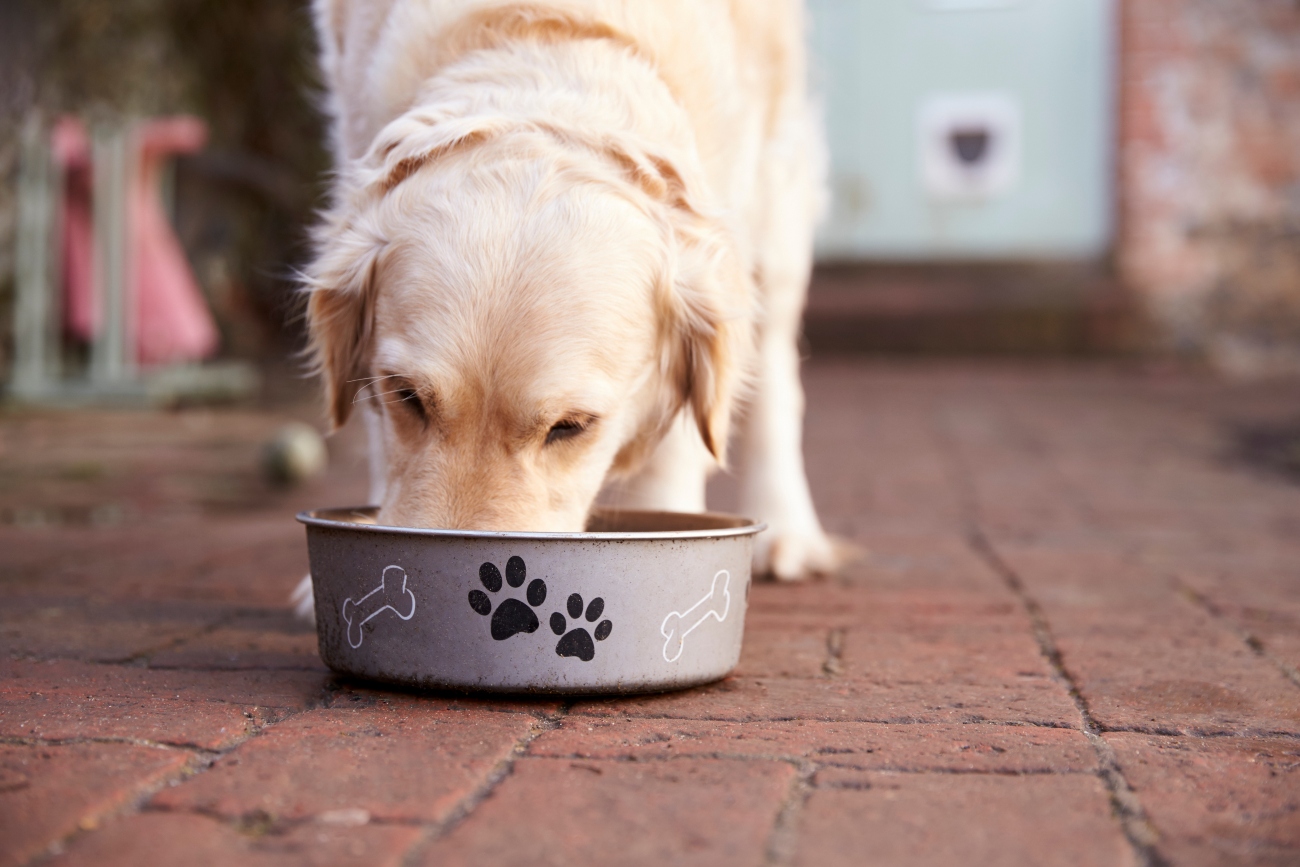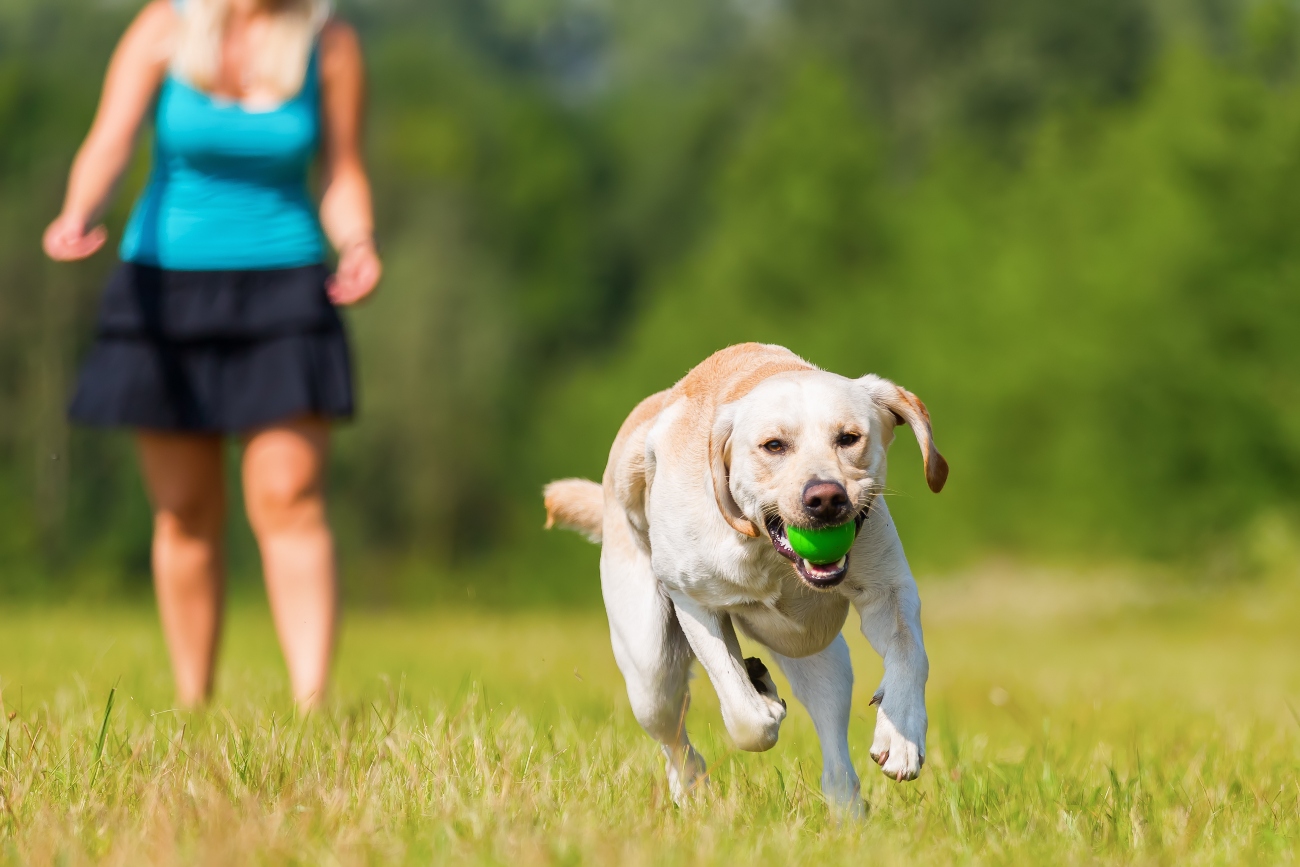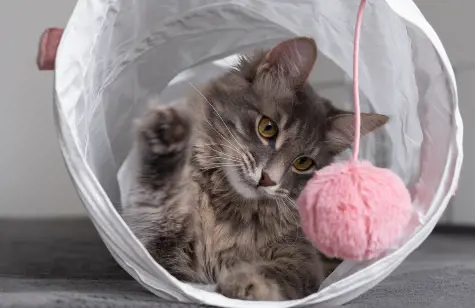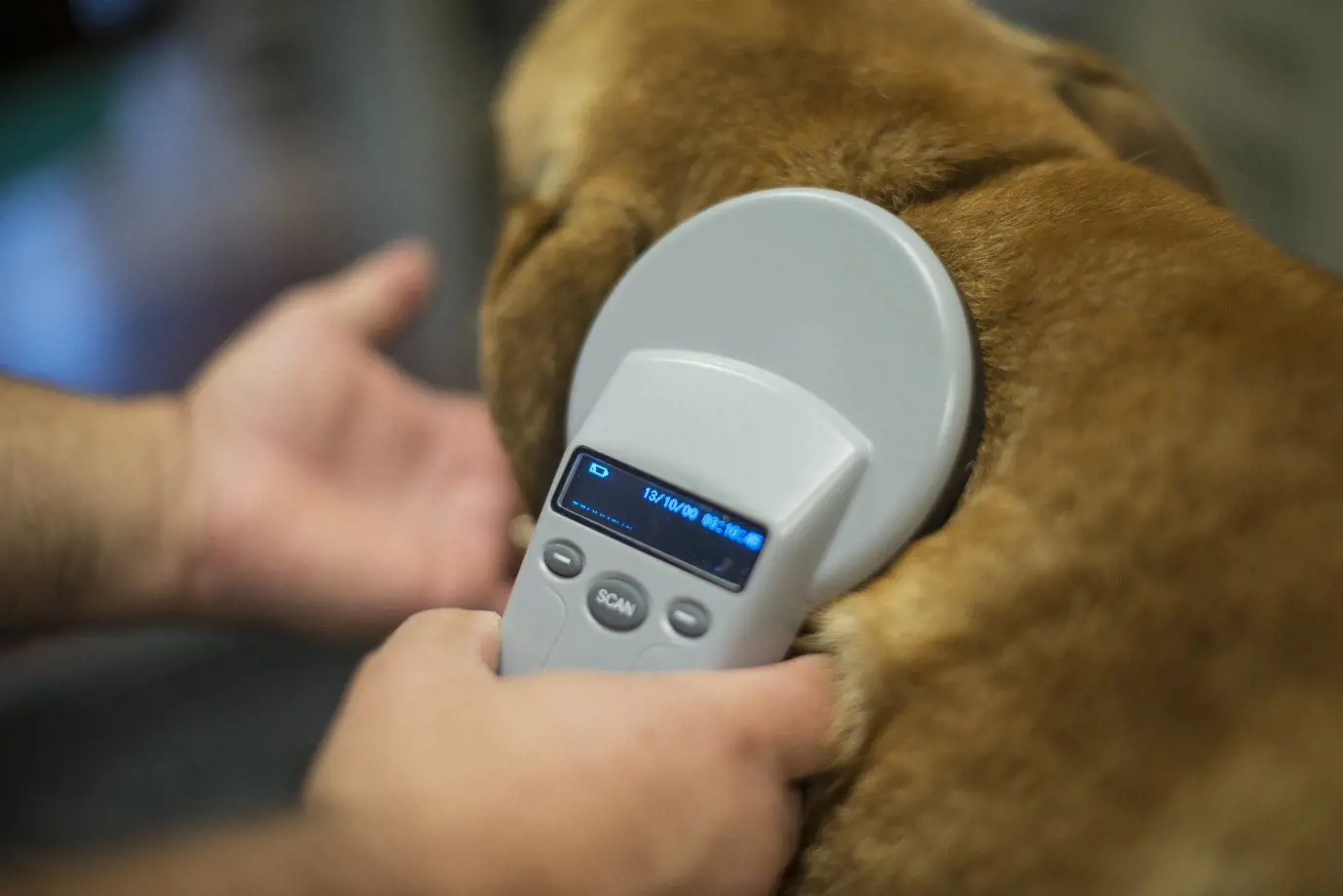Why do Labradors eat so much and how to manage their appetite?
19th May, 2023

As the proud owner of a Labrador Retriever, you've likely noticed that your furry friend has a seemingly insatiable appetite. From scarfing down their dinner in record time to scavenging for scraps on your daily walks, it's hard to ignore the fact that Labradors love to eat.
You might find yourself asking, "Why do Labradors eat so much?" This article will explore the science behind why Labrador Retrievers have such voracious appetites, and how you can manage their eating habits to keep your pup healthy and happy.
Introduction to Labradors and their eating habits
Labrador Retrievers are known for their friendly, outgoing personalities and their love of food.
According to the Kennel Club, Labradors are the most popular breed in the UK since 2021, and it's easy to see why. Their kind, gentle nature makes them excellent family pets, and their intelligence and train ability mean they're often used as service dogs and working dogs.
However, their love of food can sometimes get them into trouble.
Labradors are notorious for eating everything and anything in sight, from their own dog food to non food items like socks and shoes. This leaves many dog owners scratching their heads and wondering why their beloved pets seem to be constantly on the hunt for meal time.
To better understand why a Labrador eats so much, we must first delve into the science behind their seemingly insatiable appetites.
The science behind why Labradors eat so much
Recent research has shed light on the mystery of why Labs love to eat so much.
According to a study published in the journal Cell Metabolism (2016), Labradors have a genetic variation that makes them more prone to obesity and overeating. This genetic mutation affects the production of a hormone called pro-opiomelanocortin (POMC), which is responsible for regulating appetite and energy levels in dogs.
In Labradors, this mutation leads to lower levels of POMC, which in turn leads to an increased appetite and a decreased ability to feel full. This means that Labradors are genetically predisposed to eat more than other breeds, and it's likely a significant factor in their love affair with food.
Genetics and Labradors' insatiable appetite
The genetic mutation that affects POMC production in Labradors is not unique to this breed, but it is more common in Labradors than in other breeds.
According to the same study mentioned earlier, around 23% of Labradors carry at least one copy of the mutated POMC gene, while only around 10% of other dog breeds carry the mutation. It's important to note that not all Labradors with the genetic mutation will become obese or overeat. Environmental factors, such as diet and exercise, also play a role in determining a dog's weight and eating habits.
However, knowing that your Labrador may be genetically predisposed to overeating can help you make informed decisions about their diet and lifestyle.
The role of breed history in Labradors' eating behaviour
In addition to genetics, the history of the Labrador breed may also play a role in their love of food. Labradors were originally bred as working dogs, assisting fishermen in Newfoundland, Canada.
These dogs would retrieve fish and help haul in fishing nets, requiring them to have a high energy level and a strong work drive. Because they were working dogs, early Labradors needed to consume a lot of calories to fuel their daily activities.
As a result, they developed a strong appetite and an ability to eat large amounts of food quickly. This trait was likely passed down through generations, and it's possible that modern Labradors have retained their ancestors' love of food.
Health concerns related to overeating in Labradors
While it's endearing to watch your Labrador happily gobble down their dinner, overeating can lead to a number of health issues.
Obesity is a significant concern for Labradors, as it can lead to joint problems, diabetes, heart disease, and a reduced lifespan.
In fact, according to a study by the University of Liverpool, Labradors with the POMC gene mutation have an average lifespan that is two years shorter than those without the mutation.
It's also important to be aware of the risk of bloat, a life-threatening condition that can affect deep-chested breeds like Labradors. Bloat occurs when a dog's stomach fills with gas and then twists on itself, cutting off blood flow and leading to tissue death.
Eating too quickly or consuming large quantities of food can increase the risk of bloat, so it's crucial to monitor your Labrador's eating habits.
Medical reasons related to why Labs are always hungry
There are several reasons why a Lab is always hungry but some medical related reasons may be the answer to this question:
Rapid metabolism
Labradors have a fast metabolism, which means they burn calories quickly. This leads to a constant need for food to replenish their energy reserves.
For example: Labradors may require up to 30% more calories than other breeds of similar size, due to their high metabolism rate.
Hormonal imbalances
Certain medical conditions can cause hormonal imbalances in Labradors, affecting their hunger levels. One such condition is hypothyroidism, caused by an underactive thyroid gland. This can lead to an increase in appetite and weight gain.
For example: Symptoms of hypothyroidism in Labradors include lethargy, weight gain, and increased hunger.
Diabetes
Labradors are prone to developing diabetes, a condition that affects the body's ability to regulate blood sugar levels. When blood sugar levels are not properly regulated, a dog may feel constantly hungry, even after eating.
For example: Symptoms of diabetes in Labradors include excessive thirst, frequent urination, and increased appetite.
Parasites
Intestinal parasites, such as worms, can cause a Labrador to feel constantly hungry. The parasites consume the nutrients from the dog's food, leaving the dog with an empty feeling in their stomach.
For example: Common symptoms of parasitic infections in dogs include a voracious appetite, weight loss, and a pot-bellied appearance.
Tips for managing a Labrador's appetite

Now that you understand why Labradors eat so much, it's time to discuss how you can manage their appetite and keep them healthy.
Here are some tips to help you keep your Labrador's eating habits in check:
- Measure your Labrador's food: Use a measuring cup to portion out your dog's food based on their age, weight, and activity level. This will ensure they're getting the right amount of calories without overeating.
- Feed smaller, more frequent meals: Instead of feeding your Labrador one or two large meals a day, try breaking their daily ration into three or four smaller meals. This can help prevent overeating and reduce the risk of bloat.
- Use slow feeder bowls: Slow feeder bowls have compartments or ridges that make it more difficult for your dog to gulp down their food, encouraging them to eat more slowly and reducing the risk of bloat.
- Consider puzzle toys: Puzzle toys require your dog to work for their food, engaging their mind and slowing down their eating.
- Be mindful of treats: Treats should make up no more than 10% of your Labrador's daily caloric intake to avoid overfeeding.
The importance of a balanced diet for Labrador Retrievers
High-quality dog food designed for large breeds will contain the right balance of protein, fat, and carbohydrates to support your Labrador's energy needs to maintain a healthy weight.
Keep an eye on the ingredient list for whole, natural ingredients like:
- Meat
- Vegetables
- Grains
Avoid dog foods with:
- Artificial colours
- Flavours
- Preservatives
It's also important to ensure your Labrador is getting the right vitamins and minerals to support their immune system and overall health.
Exercise and its impact on Labradors' eating habits
Regular exercise is crucial for maintaining your Labrador's physical and mental health, as well as helping to regulate their appetite.
Aim for at least 30 to 60 minutes of daily exercise, which can include walks, runs, swimming, or playing fetch.
By keeping your Labrador active, you can help burn off excess energy and reduce their desire to overeat.
Exercise also has numerous other benefits for your Labrador, including:
- Maintaining a healthy weight
- Improving cardiovascular health
- Reducing the risk of joint issues like hip dysplasia
When to consult a veterinarian about your Labrador's eating habits
If you're concerned about your Labrador's eating habits or weight, it's important to consult with a vet. They can assess your dog's overall health, offer recommendations for diet and exercise, and rule out any underlying medical issues that may be contributing to their appetite.
Your vet may also recommend a weight management program or a prescription diet designed specifically for overweight dogs, which can help your Labrador shed excess pounds and maintain a healthy weight.
Understanding and managing your Labrador Retrievers appetite

In conclusion, understanding why Labs love eating so much is crucial for managing their appetite and ensuring they reduce weight gain.
By being aware of the genetic and historical factors that contribute to their love of food, you can make informed decisions about their diet, exercise routine, and overall lifestyle.
By implementing the tips discussed in this article, you can help your Labrador maintain a healthy appetite, reduce the risk of obesity-related health issues, and enjoy a long, happy life with your furry companion.
Helpful Pages
Recent Posts
Pet Insurance Quote
- 98% claims paid *
- Claims paid directly to vets
- 24/7 vet video consultations
- Interest free monthly payments




